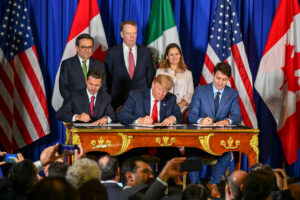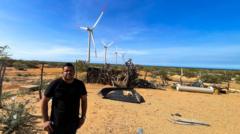The once-praised Inflation Reduction Act has shifted from a focus on climate change to economic arguments about job creation and competitiveness, reflecting changing political priorities under the current administration.
The Shifting Dialogue: Climate Policy Outsourced to Economic Arguments

The Shifting Dialogue: Climate Policy Outsourced to Economic Arguments
As the Inflation Reduction Act faces scrutiny under the Trump administration, discussions pivot from environmental benefits to economic incentives.
In May 2025, while the Inflation Reduction Act was initially celebrated in 2022 as a landmark piece of climate legislation, the atmosphere has dramatically changed under the leadership of the Trump administration. As House Republicans debate the potential repeal of the essential funding that supports renewable energy projects, discussions surrounding the law have drifted away from its original environmental objectives. Instead, advocates are increasingly framing the act in terms of economic benefits, highlighting job creation in renewable energy sectors such as solar and wind, as well as intelligent strategies for lowering electricity prices amid international competition, particularly with China.
Chad Farrell, the CEO of Encore Renewable Energy, articulated this shift by stating that the focus has transitioned from addressing environmental issues to discussing economic advantages. Industry leaders gathered in Washington to assert the importance of preserving the clean energy provisions contained within the act, emphasizing that these investments are crucial for bolstering the U.S. economy amid a changing political landscape that has sidelined climate change discussions. The administration has actively dismissed the severity of global warming, obscuring concerns for the environmental future and prioritizing immediate financial interests instead.






















